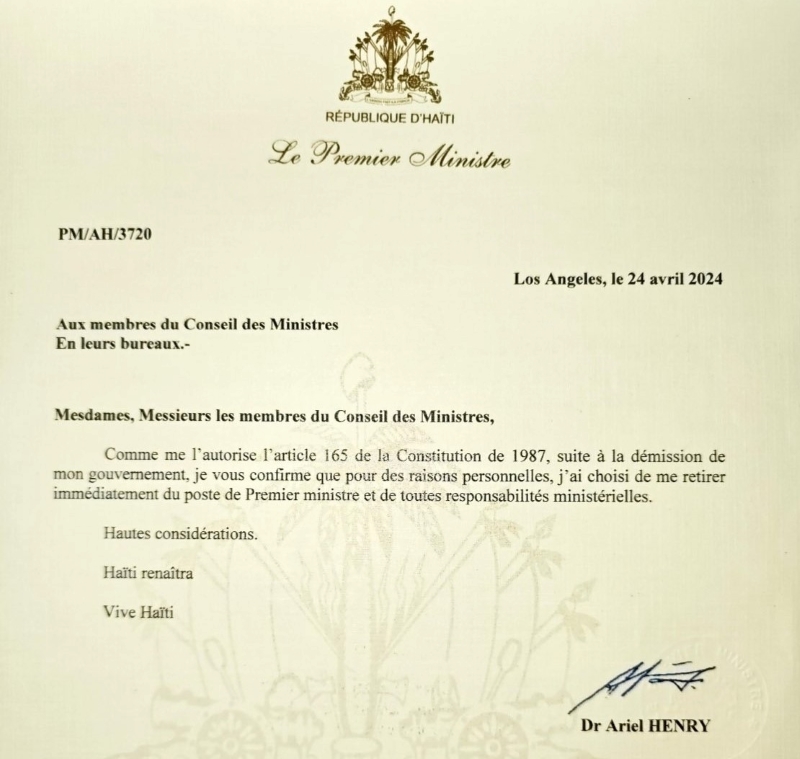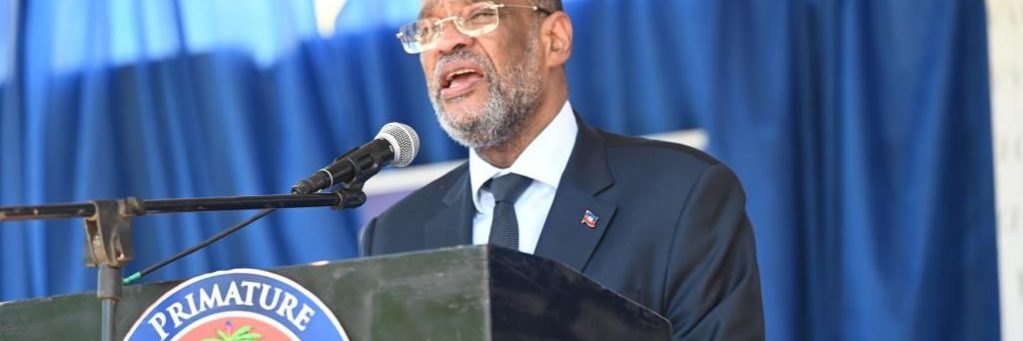Haitian prime minister Ariel Henry has resigned as the Caribbean nation is plunged into gang warfare. Image source: Ariel Henry, via X.
The prime minister of Haiti Ariel Henry formally resigned on Thursday 25 April as gang violence escalates in the Caribbean nation’s capital of Port-au-Prince.
A transitional council of seven voting members and two non-voting observers was formed on the same day, tasked with naming a new prime minister and cabinet.
The committee will also exercise some presidential powers until the election of a new president, who must be inaugurated no later than 7 February 2026.
Henry confirmed his resignation via a letter dated 24 April, more than a month after he announced his intent to step down on 11 March.
The letter was signed in Los Angeles, United States — he has not returned to Haiti since.

Henry was not appointed prime minister via direct vote.
Former president Jovenel Moïse selected Henry for the role of prime minister in 2021, shortly before the former’s assassination.
Economy Minister Michel Patrick Boisvert has been appointed interim prime minister until the new government can be formed.
Boisvert was sworn in at a ceremony on Thursday morning, which was not announced to the public due to the threat of violence.
“Haiti, our country, is at a crossroads in the search for solutions to overcome this multidimensional political crisis that has lasted for so long and the consequences of which are detrimental to the population, to property, and both public and private infrastructures,” said Boisvert at the ceremony.
Gang leader Jimmy “Barbecue” Chérizier has reportedly warned the interim government to “brace” themselves.
Insurrectionary violence has plagued Haiti for years and intensified since an alliance of gangs launched an assault on Port-au-Prince in February.
The attack took place while Henry was on an official visit to Kenya in a push for the East African nation to deploy their police force in Haiti.
Gangs controlled about 80% of the capital even prior to February.
According to the United Nations World Food Programme (WFP), Haiti is facing its worst humanitarian crisis since the devastation of the 2010 earthquake.
After returning to the UN Headquarters in New York from Haiti, WFP Deputy Executive Director Carl Skau told reporters, “The crisis is felt everywhere”.
“Half the population, some five million people, are acutely food insecure,” said Skau.
At least 2,500 people have been killed in the violence during this year alone.





